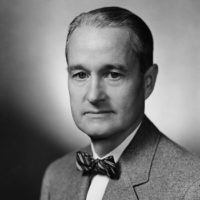
Robert W. Wilkins
Boston University School of Medicine
For contributions concerning the causes, diagnosis and treatment of hypertension.
The past decade has seen more progress against the vast problem of hypertension than all previous history. Today, literally millions of victims of this long-term illness have had their suffering alleviated and their lives extended because of new knowledge gained through medical research and widely applied by physicians. Dr. Wilkins has played a most significant role in these advances.
Dr. Wilkins was the first physician in the Western world to employ the ancient Indian snakeroot, Rauwolfia, and its derivative, reserpine, in the treatment of high blood pressure. His work with this drug, and with combinations of reserpine and other medications, did much to establish their appropriate use and resulted in the uncovering of other knowledge concerning hypertension.
More recently, Dr. Wilkins has made another outstanding contribution through his investigations, showing that the new diuretic drug, chlorothiazide, often is particularly effective in cases of hypertension which have resisted other forms of treatment and, because of its diuretic action, in arterial hypertension complicated by a failing heart and edema.
Dr. Wilkins also has postulated that, while other drugs now used for their hypotensive effects will lower blood pressure in both normal persons and hypertensive ones, chlorothiazide reduces the pressure only in hypertensives. This property may help explain the riddle of why some people become hypertensive while others do not.
Dr. Wilkins's contributions distinguish him as a truly great scientist, teacher, and physician as he takes his place among the eminent ranks of those honored by the American Public Health Association through the Albert Lasker Awards.
